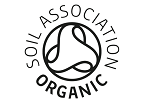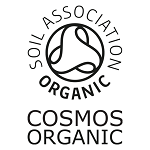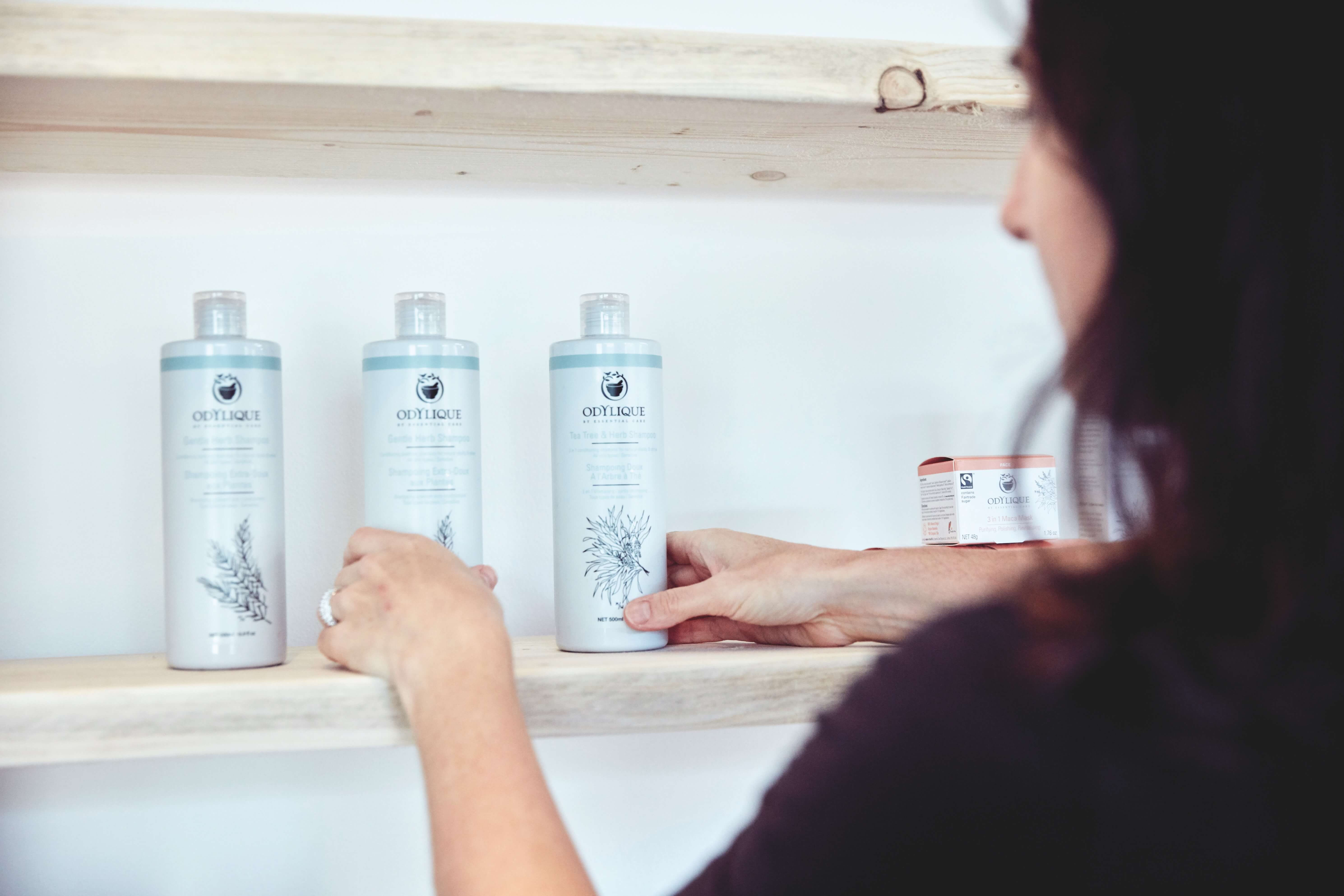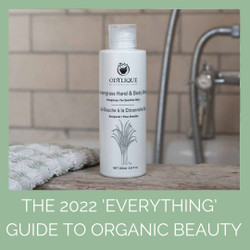The organic beauty world has come a long way from its humble origins of the early 2000s. Back when we started in 2003, there were just a handful of organic beauty brands stocked by just the most forward-thinking health food stores. Fast forward to 2022 and organic skincare is in mainstream retailers and picking up mainstream awards. Products often look, feel and perform like their high-street rivals. Not surprising then, that the growth of the organic beauty industry – comprising skincare and makeup – shows no sign of slowing.
The industry has seen 15% increase in sales in the first part of 2022. In one way, this is super exciting for challenger brands like ours, that have been here since the beginning and want to see everyone using more ethical products.
In another way though, it increases the challenge for genuine (certified!) organic brands to tackle the ongoing rise in misleading marketing that means consumers are confused about what organic is.
What IS Organic Beauty?
Organic beauty is skincare and makeup that is made with you and the planet in mind.
Plant extracts are organic, meaning they’re grown and produced in a way that respects biodiversity, avoids harsh chemicals to force growth or kill pests and doesn’t harm nature.
And generally, all ingredients are of natural origin, which we believe is better for and easier on the skin, especially if you’re allergy prone. (All Odylique products are 100% natural origin.)
Margaret, our co-founder discovered this way back at the beginning of our journey when she formulated all-natural remedies to help her family’s eczema.
We believe that organic beauty should be as organic and natural as possible. And that’s what studies suggest consumers think they’re getting.
But, sadly, in many cases, it isn’t.
Why Choose Organic Beauty?
Mainstream beauty often contains mineral oil, petroleum, artificial preservatives, and other chemicals that may cause skin irritation, hormone imbalances, and are even linked to cancer.
Synthetic fragrances, heavy metals and other cosmetic ingredients have been found in tumours, and even at the lower end of the scale are often allergenic, or irritating.
Inflammation, redness, and eczema can often be reduced by switching to a natural formula (i.e., one with a label in which you recognise most, if not all, of the ingredients).
That’s before we even get to the environmental benefits. (Which we will do later...)
Understanding Organic Standards…
There are hundreds of brands marketing their skincare and makeup as ‘organic’. They use clever buzzwords, put a pretty plant on the label and the consumer knows very little difference.
However, it’s a real point of dismay for us that UK law makes it OK for skincare companies to claim their products are ‘organic’, with only a tiny percentage of organically grown ingredients.
There is currently no official legislation for organic cosmetics, meaning that any company can describe its products as organic, no matter how the product was made or what percentage is organic.
In 2017, the Soil Association launched a campaign for clarity to throw the spotlight on greenwashing. It attracted huge numbers of signatories, and has led to some progress. But there is still much to do.
What Does this Mean for the Consumer?
This deceptive marketing makes it difficult for the average consumer to distinguish what is truly organic. This in turn affects product trust for all brands, even those like us who work hard to deliver the highest quality product.
76% of consumers say they struggle to trust labelling – so we’re determined to make sure our customers know when they’re getting the real deal, and when it’s all just marketing hype.
We believe the long-term answer is proper regulation that would make it illegal to market cosmetics as organic without certification (N.B. France, Denmark and California do now have laws in place). But in the UK, laws to protect the organic beauty consumer are likely light years away.
So the meantime, here's our FAQ guide to help you navigate the organic beauty jungle:
How To Tell If Products Are Organic?
As there is no law to stop traders misleading you with marketing speak, you need to arm yourself with the facts.
The best way to combat deception is through checking the product certification – look for logos or marks like the Soil Association, Cosmos and Natrue to be sure.
The Soil Association is one of the most well-known certifications for organic products. Formulations with their certification mark will have been rigorously checked to ensure the ingredients, production process and packaging pass strict environmental standards.
In recent years, Soil Association standards have merged with those of other global certifiers to form the Cosmos standard. So any product launched after 2018 will say 'COSMOS' under its organic certification symbol.
Mark of certified organic product launched before 2018:

Mark of certified organic product launched after 2018:

How Does a Brand Get Certified Organic?
Under the Cosmos and Natrue standards (which are now the 2 main harmonised global organic cosmetic standards) at least 20% of a product’s total ingredients must be organic.
The rest must be natural - with very few exceptions - and are subject to strict rules.
Substances suspected of being toxic to humans or the environment are not allowed, neither are genetically modified ingredients.
And most often than not, organic quality must be used wherever it exists. This makes for potentially large quality differences when you’re talking about expensive ingredients like rose which is much less expensive when not organic.
This is all enforced through strict formulation and labelling checks and by annual site inspections and audits.

Are there other Organic Certifications?
The UK has a couple of other certifications including Organic Farmers & Growers and the Organic Food Federation.
Demeter certifies products that contain ingredients grown according to biodynamic agriculture rules.
Along with the Soil Association, Ecocert (from France) and the BDIH (from Germany) are also members of the harmonised Cosmos standard. The large German brands like Dr Hauschka and Weleda created their own standard called Natrue.
So there still are a number of different logos to recognise.
Some certifications are slightly stricter than others, but we’d always argue that a certification is better than none.
A word of warning: There are plenty of brands making up their own logos.
Just look up the logo online and find out who’s behind it, to avoid being duped with a fake logo.
Why Support Certified Organic Beauty Methods?
Organic farming is better for biodiversity, uses 45% less energy than non-organic farming methods and produces 40% less greenhouse gases than conventional farming techniques.
What’s not to like?!
Just imagine how much carbon we could cut if the whole of the UK converted to organic farming (at the moment organic agriculture represents just 3% of the UK’s farmed area).
Organic farming, whether using manure or leguminous cover crops to defend against pests and promote healthy plant growth, has also been found to be the best farming technique in terms of providing the healthiest and most nourishing crops.
Organically grown plants feature far higher levels and greater varieties of vitamins, minerals, nutrients when compared to the crops produced via the use of pesticides and herbicides. - And these vitamins, minerals and nutrients are what boost our skin and protect us from premature ageing.
Want to try Organic Beauty?
At Odylique we understand that you often want to sample before going full size. We offer a wide range of sachets and sample size pots here.
More Advice? Get in touch with us at customercare @ odylique.co.uk where our experts will be happy to help!

